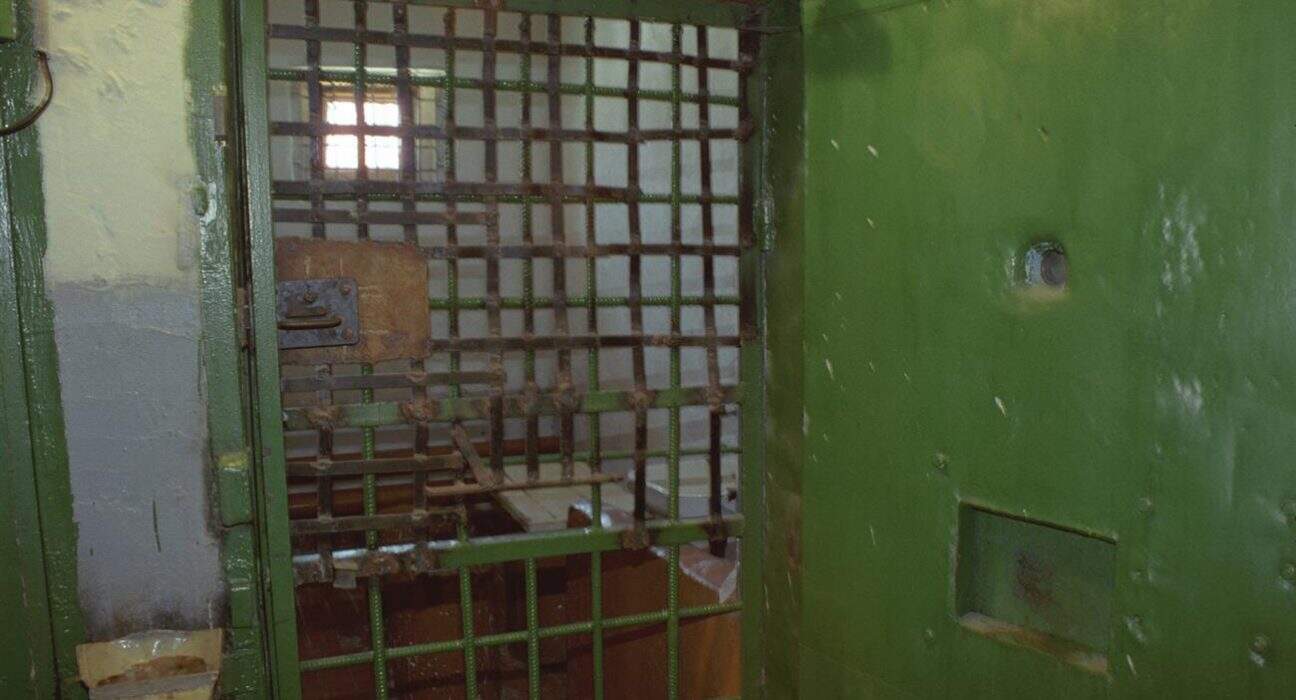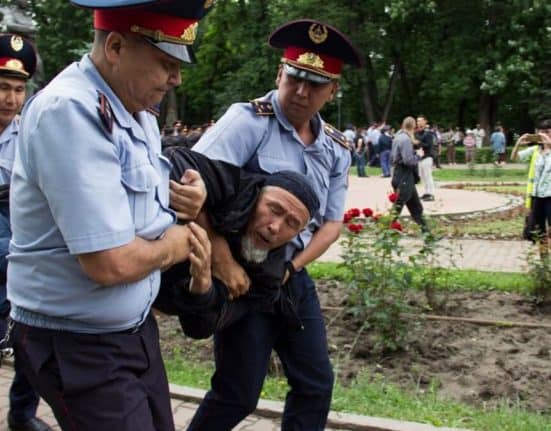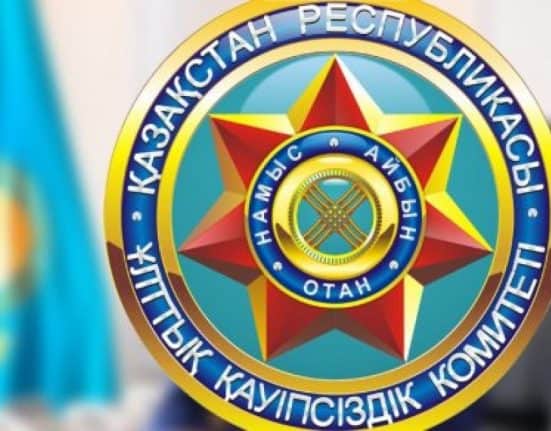Report on the results of a special study “Atlas of conditions of detention in temporary detention facilities of the internal affairs bodies of the Kyrgyz Republic” was prepared as a result of a joint study of the National Center for the Prevention of Torture of the Kyrgyz Republic and the Coalition against Torture in Kyrgyzstan in 2022, with the support of the OSCE Program Office in Bishkek.
As the authors of the report note, the study is based on standards for the treatment of detainees and guarantees for their rights. This study was aimed at analyzing the conditions of detention in the temporary detention center of the internal affairs department of the republic for compliance with international standards at the level of legislation and their practical application.
It’s stated that the Standard Minimum Rules provide for the existence of an effective order of detention as a basis for admission and detention. In accordance with national legislation, the basis for the admission and detention in temporary detention centers of persons, who were detained on suspicion of committing crimes, is the protocol of detention, and the accused, in respect of whom detention is applied as a measure of restraint, is the decision (determination) of the judge (court).
“In the course of this study, it was revealed that in addition to the grounds for detention provided for by the criminal procedure legislation, the use of a report is practiced in the TDF. Thus, in the event of bodily injury to a person suspected or accused of committing a crime, and refusal on this basis to be admitted to the pre-trial detention center of the Penitentiary Service under the Ministry of Justice of the Kyrgyz Republic, the detention in which was chosen as a measure of restraint by a decision of a judge (determination court), a police officer draws up a report addressed to the head of the Department of Internal Affairs,” the document says.
“Thus, if the accused has bodily injuries, on the basis of the report and the written consent of the head of the Department of Internal Affairs, employees get the opportunity to keep this person in a temporary detention center until the traces of physical influence disappear,” human rights activists say.
At the same time, the researchers also found shortcomings related to the provision of medical care to prisoners.
The Minimum Standards stipulate that the provision of health care for prisoners is the responsibility of the state. Prisoners should be provided with the same standards of health care that exist in society, and they should be provided with free access to the necessary health care services without any discrimination based on their legal status.
According to the national legislation, treatment-and-prophylactic and sanitary-epidemiological work in the TDF is carried out in accordance with the legislation on the protection of the health of citizens. Those delivered to the TDF are questioned by the duty officer to identify those in need of emergency medical care. The results of the questioning of the suspects and the accused, the complaints about the state of health and the type of the medical assistance provided to those in need are recorded in a special journal, which is permanently kept by the duty officer of the TDF.
By Decree No. 790 of the Government of the Kyrgyz Republic dated November 20, 2015, the Program of state guarantees for providing citizens with health care (State Guarantee Program) was approved. It’s accompanied by the list of categories of citizens entitled to receive health care free of charge and on preferential terms. According to paragraph 29, this list includes persons who are in temporary detention centers under the Ministry of Internal Affairs of the Kyrgyz Republic.
“In accordance with paragraph 5 of the State Guarantee Program, the condition for the provision of free and preferential health care within the framework is the availability of a document certifying the right to benefits (passport, birth certificate for children under 16 years of age, birth reference of a child before receiving a birth certificate, a pension certificate, a compulsory medical insurance policy, as well as referrals for laboratory diagnostic tests, hospitalization, issued by specialists: groups of family doctors, family medicine centers, general medical practice centers, departmental medical service, military medical commission, consultative and diagnostic hospital departments). This provision primarily applies to vulnerable segments of the population and all persons held in closed institutions,” the human rights activists’ report says.
However, it is noted that in practice, employees of departmental medical services are not aware of the conclusion of contracts and benefits provided for by the Regulation on preferential drug provision of the population at the outpatient level under the State Guarantee Program and the Additional Program of Compulsory Medical Insurance.
“As a result, those held in temporary detention facilities don’t have the opportunity to use free and preferential medical care under the State Guarantees Program, which is a violation of their right to medical care,” the authors of the study summarize.
As it turned out, there is a full-time medical worker (paramedic) only in the TDF of the Main Internal Affairs Directorate in Bishkek, where a medical office is equipped. In 26.6% of TDFs there are medical offices, but there is no full-time medical worker.
“Some of these rooms for medical personnel were equipped by the Red Crescent Society project in Kyrgyzstan during the period of 2017-2018. This project provided for the remuneration of a doctor and paramedic, who, according to the schedule, 3-4 times a week, and also as needed, came to the temporary detention facility to provide medical assistance to detainees. The project ended at the end of 2020, since then the rooms in the TDF have not been functioning,” the researchers specify.
TDFs, that don’t have medical workers on staff, conclude agreements with territorial healthcare organizations on cooperation in organizing medical care for detainees. In a third of TDFs (35.5%), contracts were not concluded. Medical assistance is provided only in emergency cases by calling an ambulance.
Each time the accused is brought to places of detention, as well as when a complaint is received from him, his lawyer or relatives about the use of torture or cruel treatment against him, he is subject to a mandatory medical examination with the preparation of an appropriate document. The obligation to conduct a medical examination rests with the administration of the place of detention.
In order to exercise this right, as well as to fully document the results of the medical examination of detainees upon placement in the TDF, the Ministry of Public Health approved the Form of the medical examination of a person upon admission to the TDF No. 033/у and the Instruction regulating the procedure for filling it out. A medical worker of a healthcare organization fills out this Form before being taken a detainee to the TDF: 1) in the absence of complaints on the part of the person about the use of violence, torture and cruel treatment; 2) if the person has no bodily injuries. If there are complaints from the detainee about the use of violence, torture and cruel treatment against him, or if there are health complaints or bodily injuries on his body that may be associated with the use of violence, torture or cruel treatment, the medical worker is obliged to fill out Form of medical examination No. 003-3/y, approved by the order of the Ministry of Public Health of the Kyrgyz Republic (according to the principles of the Istanbul Protocol).
In the course of the study, the practice of filling out Form No. 003-3/y upon transfer to TDFs was studied. It showed that this Form is not filled out in more than a third of TDFs (38%).
It should be noted that, according to official data, the Ministry of Internal Affairs of the Kyrgyz Republic operates 46 TDFs, in which there are 259 cells with 1217 beds. The actual occupancy is 1374 people.






